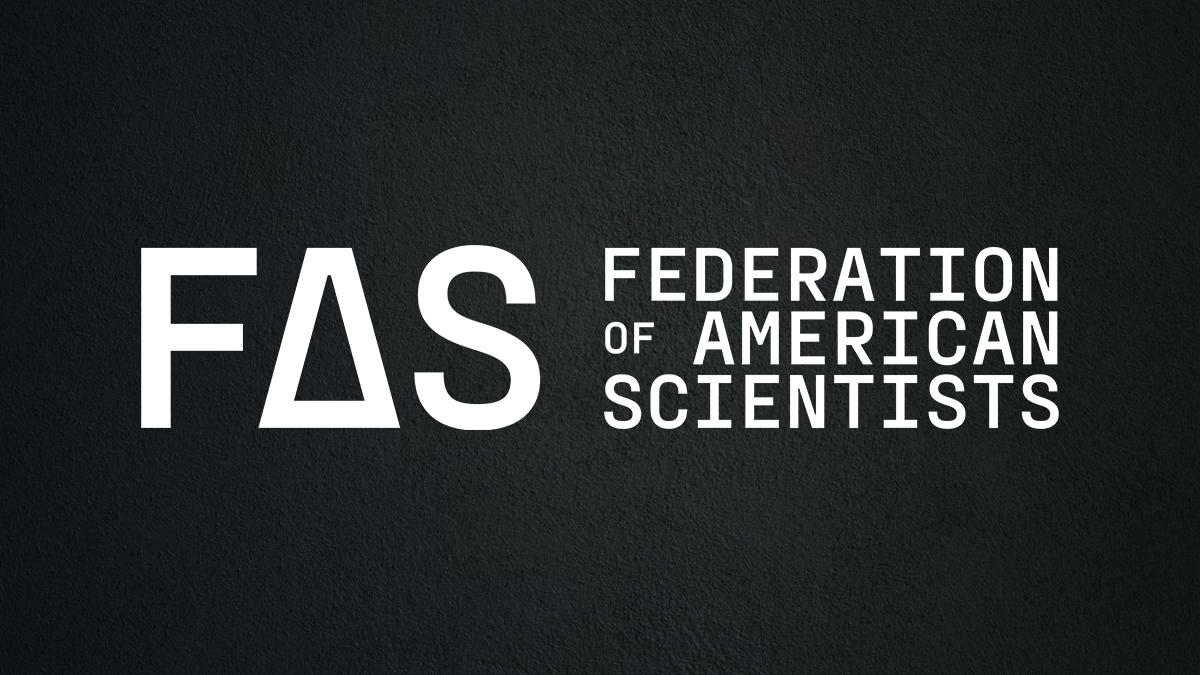
Nuclear Experts from the Federation of American Scientists Call for More Transparency from the Defense Department with Its Decision to Certify the Sentinel ICBM Program
The Air Force’s flawed assumptions, processes, and estimation methodologies have led to unprecedented cost overruns
Washington, D.C. – July 9, 2024 – The Federation of American Scientists (FAS) stands with fellow scientists and peer organizations critiquing the Biden administration’s decision to certify the Sentinel ICBM program, despite it being 81% over budget and two to three years behind schedule. This program does not improve American safety or global peace efforts, and is an unnecessary financial burden on taxpayers.
The Pentagon’s review of the Sentinel came after the projected cost of the project rose by 37 percent, to $131 billion––requiring a re-evaluation of the program and a consideration of possible alternatives under the Nunn-McCurdy Act. Recent reporting from Bloomberg indicates that the Sentinel’s costs are now estimated to rise to $141 billion. This represents an 81 percent increase from the Pentagon’s own estimate in 2020.
“You can be for nuclear weapons modernization and think this program is both in trouble and needs a serious re-examination. At 81% over budget and $140 billion and climbing, we owe it to consider real alternatives and get modernization right,” says Jon Wolfsthal, Director of Global Risk at FAS.
In its justification decision, the Pentagon suggested that the Nunn-McCurdy review team considered “‘four to five different options,’ including extending the aging Minuteman III missiles in 2070, ‘hybrid options of different ground facilities, mobile versus fixed,’ and others.” However, the Pentagon’s stated justifications for continuing the program, its timelines, and its funding are all questioned by the FAS team.
Associate Director for FAS’ Nuclear Information Project, Matt Korda, asks: “Where does the year 2070 come from? The Air Force previously referred to the year 2075 in its program documentation, and as far as I know, neither year is codified in any official policy documents like the National Defense Strategy or the Nuclear Posture Review. Yet these benchmarks have enormous bearing on cost estimates, and can be purposely selected to tip the scales and make some options look more palatable than others.” Korda wrote a detailed report in 2021 showing how changes in these cost benchmarks would have indicated that alternatives to the Sentinel––such as life-extending the current fleet of Minuteman III ICBMs––would very likely have been cheaper than building an entirely brand-new weapon system.
Director of FAS’s Nuclear Information Project, Hans Kristensen, is more pointed in his criticism: “Despite massively escalating cost projection, having sold the new Sentinel ICBM program to Congress based on unrealistic cost, the Pentagon says go ahead anyway.”
Kristensen and Korda are leading researchers on the global stockpile of nuclear weapons. Along with their colleagues, Senior Research Associates Eliana Johns and Mackenzie Knight, they produce and distribute, in conjunction with the Bulletin of the Atomic Scientists, the Nuclear Notebook, detailed reports on the status of nuclear weapons worldwide.
Knight was among the first to identify Sentinel’s extreme cost overruns and raise public awareness of this issue. In March she wrote what should happen next:
Secretary Austin’s likely certification of the Sentinel program should be open to public interrogation, and Congress must thoroughly examine whether every requirement is met before allowing the program to continue. Congress should ask the Government Accountability Office and Congressional Budget Office to conduct independent reviews to interrogate the Pentagon’s justification for Sentinel and ensure hawk-eyed scrutiny of the program’s next steps.
The Hill, March 1, 2024
She adds now: “The Sentinel program being allowed to continue despite an 81% cost increase sets a dangerous precedent. Whether the program is flawed, necessary, or not, Congress and the administration should not allow ostensibly limitless spending on nuclear weapons programs. How much is too much?”
More than 700 scientists, including ten Nobel laureates and 23 members of the National Academies, have signed a letter calling for President Biden and Congress to cancel the program, led by the Union of Concerned Scientists.
###
ABOUT FAS
The Federation of American Scientists (FAS) works to advance progress on a broad suite of contemporary issues where science, technology, and innovation policy can deliver dramatic progress, and seeks to ensure that scientific and technical expertise have a seat at the policymaking table. Established in 1945 by scientists in response to the atomic bomb, FAS continues to work on behalf of a safer, more equitable, and more peaceful world. More information at fas.org.
The U.S. should continue its voluntary moratorium on explosive nuclear weapons tests and implement further checks on the president’s ability to call for a resumption of nuclear testing.
This missile launch provides an opportunity to further examine China’s nuclear posture and activities, including the type of missile, how it fits into China’s nuclear modernization, and where it was launched from.
Known as Steadfast Noon, the two-week long exercise involves more than 60 aircraft from 13 countries and more than 2,000 personnel.
Increasing women in leadership roles is important for gender parity and bringing in new perspectives, but it does not guarantee peace.